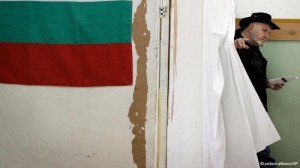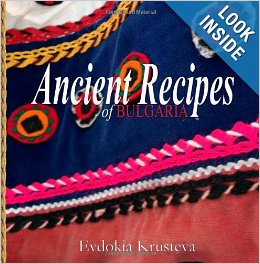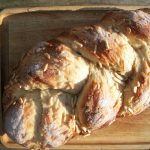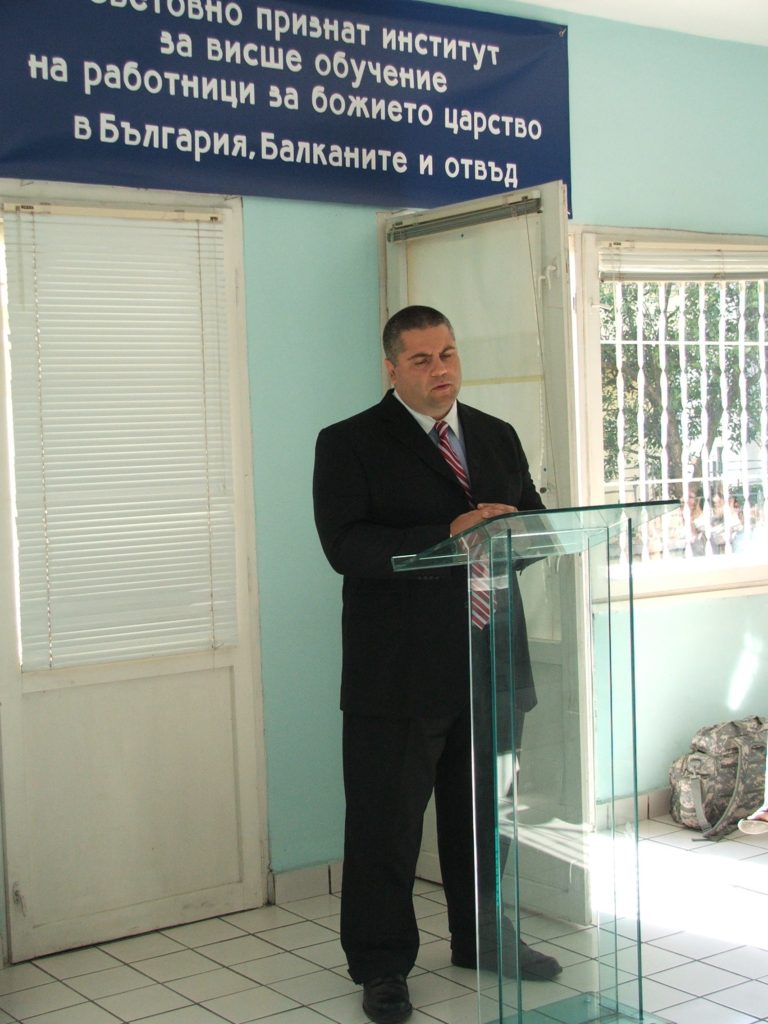BULGARIA: 2017 Election Results
As we have previously proposed, this puts Bulgaria back on the “Red Light of 25 Years of Communism…” as in 2013, 2014, 2015 and 2016…
Government Elections in Bulgaria (2005-2015):
 2005 Parliamentary Elections
2005 Parliamentary Elections
2006 Presidential Elections
2007 Municipal Elections
2009 Parliamentary Elections
2009 European Parliament elections
2011 Presidential Elections
2011 Local Elections
2013 Early parliamentary elections
2014 Early Parliamentary Elections
2015 Municipal Elections
Washington Post/Associated Press
SOFIA, Bulgaria — The center-right GERB party of former Prime Minister Boiko Borisov took the lead in Bulgaria’s parliamentary election on Sunday, a pair of exit polls showed, a result that if confirmed by official returns indicates support for the country keeping its European identity.
The Alpha Research exit poll said GERB won 32.2 percent of the vote, with the Socialist Party coming in second with 28 percent, while a separate exit poll by Gallup International Balkan had GERB with 32.8 percent and the Socialists with 28.4 percent.
The leader of the Socialists Party later conceded defeat and said the party would not take part in a coalition government with GERB.
Official results are expected Monday. If they confirm the exit polls, Borisov, a political maverick who combines man-in-the-street rhetoric with a pro-European Union disposition, will be handed a mandate to form his third cabinet.
GERB did not win enough votes to govern alone, and will likely form a coalition government with the United Patriots, an alliance of three nationalist parties that the exit polls showed placing third.
Borisov, 57, resigned as prime minister after his party lost the November 2016 presidential election. Parliament was dissolved in January, and the president appointed a caretaker government that will stay until a new government is formed.
Bulgaria elections 2017
With less than a week to go to Bulgaria’s early parliamentary elections on March 26, GERB leader Boiko Borissov and Bulgarian Socialist Party leader Kornelia Ninova are engaging sniper fire over Ninova’s pledge to block EU sanctions against Russia should she become prime minister. The election campaign will see exchanges between the leaders of Bulgaria’s two largest party take the form only of sniping at each other over the political parapets, given that in the past week it became clear they could not agree on the terms for meeting in a televised debate.
Ninova said towards the end of the week that she would debate with Borissov in absentia, making statements from wherever she was in Bulgaria and awaiting his response. Her first move was to say that should her party win the elections and she become prime minister, she would go to Brussels and say, “gentlemen, the next time you come to vote on sanctions against Russia, Bulgaria will impose a veto”. In making the move, Ninova ignored two facts, one that not all EU leaders are men, and second, that such votes are by qualified majority – meaning that a thing such as a Bulgarian veto does not exist. Borissov responded that a prime minister Ninova in Brussels saying that Bulgaria would “veto” sanctions against Russia would put Bulgaria into “monstrous isolation”.
As we have previously proposed, this puts Bulgaria back on the “Red Light of 25 Years of Communism…” as in 2013, 2014, 2015 and 2016…
Government Elections in Bulgaria (2005-2015):
 2005 Parliamentary Elections
2005 Parliamentary Elections
2006 Presidential Elections
2007 Municipal Elections
2009 Parliamentary Elections
2009 European Parliament elections
2011 Presidential Elections
2011 Local Elections
2013 Early parliamentary elections
2014 Early Parliamentary Elections
2015 Municipal Elections
Featured Author of the Month Evdokia Krusteva Shares Ancient Recipes of Bulgaria
BulgarianCooking.com’s featured author of the month is Bulgarian native, Evdokia Krusteva who wrote the cookbook, “Ancient Recipes of Bulgaria“.
Evdokia (Eva) Krusteva was born and raised in Yambol, Bulgaria. She is a fourth generation Pentecostal believer and minister of the gospel. She fondly remembers how her home was opened to holding services underground during communist times. These times would be centered around a meal as not to bring unwanted attention to people gathering.
Having lived in communist and post-communist Bulgaria, Eva has a unique view on life with a great story to tell. She often recalls how dishes were traditionally prepared growing up along with the many unique customs of each. She has included a few in this collection of memories.
 This cookbook features nearly two dozen truly ancient recipes of Bulgarian cooking. Some of these dishes are distant relatives to ones found in ancient Roman manuscripts believed to have been compiled in the late 4th or early 5th century AD. Others are among those far before the time of Christ. As Bulgaria is a country of oral history, recipes are typically not written, but passed down from one generation to the next by experiencing the method of preparation. With nearly every dish in Bulgarian cooking comes a story and custom. This cookbook attempts to preserve these hundred year old stories for many years to come so they can continue to be passed down.
This cookbook features nearly two dozen truly ancient recipes of Bulgarian cooking. Some of these dishes are distant relatives to ones found in ancient Roman manuscripts believed to have been compiled in the late 4th or early 5th century AD. Others are among those far before the time of Christ. As Bulgaria is a country of oral history, recipes are typically not written, but passed down from one generation to the next by experiencing the method of preparation. With nearly every dish in Bulgarian cooking comes a story and custom. This cookbook attempts to preserve these hundred year old stories for many years to come so they can continue to be passed down.
Addressing the Masters of Chaplaincy Ministry Program Graduating Class in Bulgaria
Integration of Learning and Faith
 The believers within our Pentecostal tradition, despite some historical presupposition against education, have generally strived to receive and impart knowledge much higher than what secular science can offer. Our paradigm of integration of faith and learning has come from a personal experience of knowing God rather than scientific method, and in a way it has become our own scientific method of testing truth beyond our religious context into daily life.
The believers within our Pentecostal tradition, despite some historical presupposition against education, have generally strived to receive and impart knowledge much higher than what secular science can offer. Our paradigm of integration of faith and learning has come from a personal experience of knowing God rather than scientific method, and in a way it has become our own scientific method of testing truth beyond our religious context into daily life.
Similarly, being formed in the Spirit impacts our lives holistically, even the areas of our deepest doubts, our most serious suspicions and our greatest fears. It is there that true discoveries occur and where we realize that we know not the cosmos, the earth, our land, our families and even ourselves unless we first know God. Faith and learning become a personal spiritual quest, which reaches beyond just a Christian worldview or interpretation of faith and reason, to our very beings and change us.
In my case, faith and learning developed from my personal experience as a fifth generation Pentecostal believer and Spirit-filled minister. I can truly say that it has been a journey of reaching and a quest of finding, one that has changed me forever. Education did not make me a minister of the Gospel, nor did it have the power to do so, but it most certainly made me a better minister and a servant of the Kingdom.
Along the way, God used teachers who did much more than just deliver content in classrooms, but established the faith into our hearts and minds. In my journey, they have become road markers who knew God and made Him known to others. The passion to become personally such a milestone in the spiritual journey of others has been the greatest challenge for integration of faith and learning within both our ministry and personal Pentecostal experience. For our journey with God should not be without a destination or an end. It should be about actually getting there, at the place and reality where Scripture declares with most definite certainty that “we shall know.”
Bulgaria set for snap election as president appoints interim government
Bulgaria’s new president called an early national election for 26 March and appointed a former parliamentary speaker as caretaker prime minister until then.
Ognyan Gerdzhikov, 70, currently a professor of law and head of an arbitration court, served as speaker of parliament in a centrist government from 2001 to 2005 and is now the country’s interim prime minister until the March elections. Kiril Ananiev, 61, currently a deputy finance minister in charge of budgets, will take over as finance minister, two sources familiar with the matter told Reuters. Ananiev is seen as a safe pair of hands, having served as deputy finance minister in five different governments. The appointments show that President Rumen Radev, who took office this month after winning an election with the backing of the opposition Socialists, is seeking continuity and balance, analysts said.
WEBSITES for MINISTRY: The Creative Process
 Before moving into social media, it is helpful to establish a personal and/or church website where most resources are located conveniently for visitors to find. Recommended, this would be a WordPress based blog-like website, which is designed for easy content management i.e. text, pictures, audio and video:
Before moving into social media, it is helpful to establish a personal and/or church website where most resources are located conveniently for visitors to find. Recommended, this would be a WordPress based blog-like website, which is designed for easy content management i.e. text, pictures, audio and video:
- First thing to do is get a .com domain name for the website(s). Other choices may also prove suitable
- Second, hosting for the website needs to be purchased. This is the virtual web space where the files and database of the website will be stored. For a WordPress hosted website, a basic hosting plan from GoDaddy would be around $5/mo (https://www.godaddy.com/hosting/wordpress-hosting)
- Finally, the design for the website is determined by a web template – a set of files that makes your website look the way it will be seen by the visitors.
- GoDaddy hosting installs WordPress automatically so you don’t have to worry about the technical stuff. The whole process in detail is described here: https://cupandcross.com/webministry-for-churches-step-by-step-guide-wordpress-installation/
- If the above seems too complicated, an alternative free and simple blog could be setup in minutes with free hosting on WordPress.com. It is not as good as a owned and personalized website, but it will get most of the job done (with some minor limitations).
Once the website(s) is established, the blogging process begins as described here: https://cupandcross.com/webministry-for-churches-step-by-step-guide5-things-to-learn-about-webministry/
When enough content is built up, you can proceed with:
- Social networking (promoting the content to the targeted group of people)
- and Social events (meetings with the targeted group of people in person)












